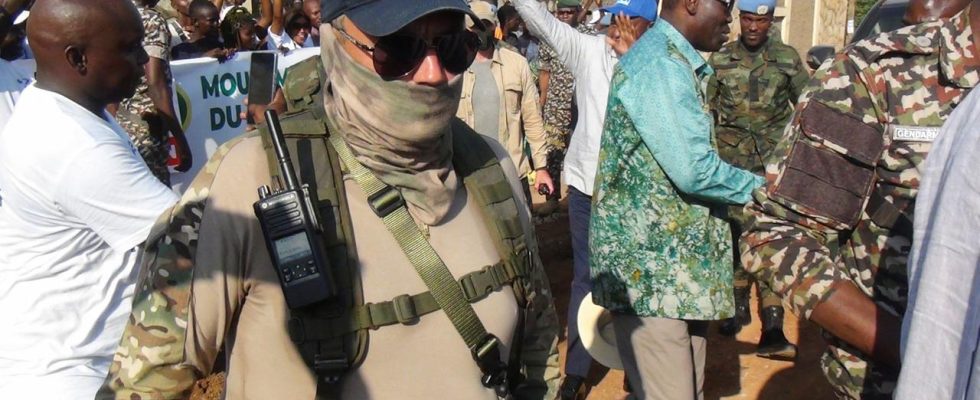In Africa, the restructuring of the Russian Wagner Group began even before the death of its boss Prigozhin. But where the troops will be integrated and how is still unclear. It’s about political influence and a lot of money.
Elite soldiers skillfully jump from a landing helicopter into the desert sands of Mali and remain there until the camera is off: a short, glossy advertising clip on the Internet about Russia’s Wagner troupe at work, aimed at the audience at home as well as at the decision-makers in Africa . The message: We still exist and you can rely on us.
Creating confidence among the affected governments in Africa – this may still be in the spirit of the Kremlin and its Defense Ministry. But one thing is also clear: the restructuring of Wagner has begun, the only thing that is uncertain is where the journey will go. So far it has been easiest in Syria, where Russia has its own army units. Wagner’s activities here were hindered by the Russian Defense Ministry even before Yevgeny Prigozhin’s uprising in July and the crash of his plane in August.
Recently, according to a Wagner blogger, the Russian army even blocked airstrips to prevent supplies for the mercenary force. Nevertheless, after the death of Wagner’s top brass, a majority of Wagner fighters in Syria reported to the Ministry of Defense, security expert Vanda Felbab-Brown recently explained at a Brookings Institution event: “That was easy – the Russian military has full control there .”
A tangled network of companies
This is not so easy elsewhere, for example in the Central African Republic. Here the activities of the more than 1,000 mercenaries are closely linked to Wagner’s economic activities: gold, diamonds, timber concessions and even alcohol and coffee have now become the war currency with which Wagner can be paid.
Various companies operate under the Wagner umbrella – the network must first be understood and is hardly suitable for a simple solution. That’s probably also the reason why Wagner’s deputy Vital Perfilew is allowed to continue undisturbed for the time being.
Problems in Mali
Wagner has completely different concerns in Mali. The more than 1,000 Wagner fighters have to fill a security gap left by the much larger UN peacekeeping force (with its Bundeswehr contingent) and the French. At the same time, the army that fights side by side with Wagner against Islamists is losing more and more ground.
With the insurgent Tuareg from the north, another front has opened up, more and more army bases are being lost, and shaky videos from the rebels allegedly show killed Russian mercenaries. Mali’s military junta is under pressure, and the reputation of the Russian fighters on whom the government depends and who should make Mali a safe country again is also at stake.
In Sudan, the situation is even more complicated: In the civil war between army general Abdel Fattah Burhan and his opponent Mohamed Mamdan Dagalo, Prigozhin sided with the latter – certainly because of the good business that Prigozhin was able to do with the country’s gold through him. The Kremlin, in turn, also maintains contacts with Burhan.
Where does the Wagner Group end up?
Fighters, raw materials, espionage and disinformation: Prigozhin’s legacy is a big box. The plus side for Russia: political and geostrategic influence in an increasingly important part of the world – and not only that. “The system brings mineral resources such as gold to Russia at a time when the country is subject to sanctions, but at the same time funds for it war in Ukraine,” says Kimberly Marten from Columbia University.
That’s why no observer believes that the “Wagner system” will be destroyed. But can it be transferred to the army and secret service? Before and after Prigozhin’s death, Russia’s Deputy Defense Minister Yunus-Bek Yevkurov traveled to four countries in the region, promising help – and making it clear who was in charge in Moscow.
No more shadow army
However, a clear connection between Wagner and the state would have consequences: “If the camouflage were completely lost, Russia would also be responsible for the violations of human rights,” says security expert Vanda Felbab-Brown. A mercenary force that is repeatedly accused of massacring civilians could easily ruin the reputation of the sending country.
Russian President Vladimir Putin welcomed the former Wagner official and co-founder of the army, Andrei Troschev, a month ago and commissioned him to form volunteer units, primarily for the fight in Ukraine. After the failed Wagner mutiny, Troschev moved to the military company “Redut”, which is close to the Defense Ministry. Nevertheless, nothing has been decided on the question of successor, the situation remains confusing.
In June, a rebellion by Wagner’s troops against the Russian army leadership failed, and the mercenaries were then offered integration into the Russian army. Wagner boss Prigozhin died around two months later under still unclear circumstances together with other leading members of the group in a plane crash in the Tver region of Russia.
The mercenaries want a dynastic solution
The only thing that is likely is that the “Wagner System” has a future, even if it needs new leadership and perhaps a different name.
And it is likely that the Wagner faithful’s preferred candidate has no chance: Pavel Prigozhin, the son of their “hero.” The Kremlin and the ministry will probably continue to associate the name Prigozhin with a problem rather than a solution for some time to come.

